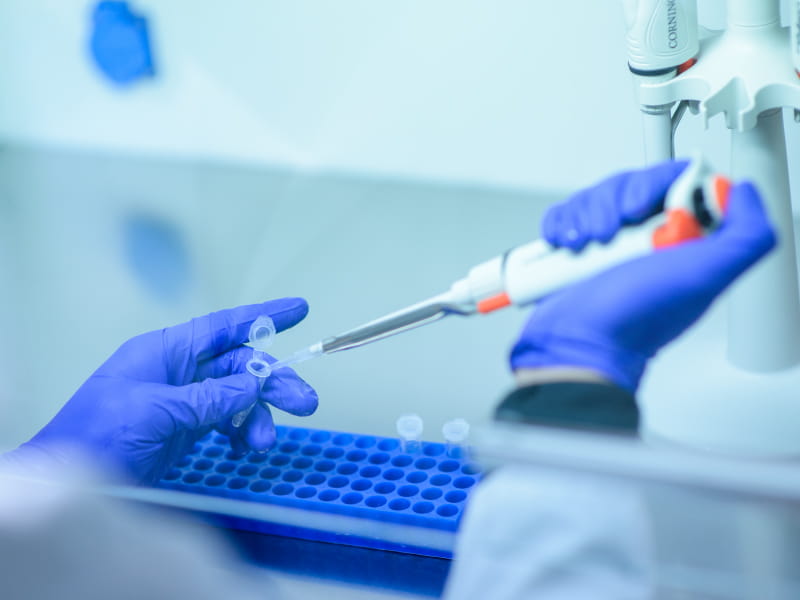The hunt for COVID-19 treatments has researchers optimistic
By Michael Merschel, American Heart Association News

COVID-19 launches a multipronged assault on the human body, causing complications that range from mild to deadly.
The ultimate defense would be a vaccine, which could provide immunity to the coronavirus. But since no vaccine will be 100% effective, figuring out how to best treat COVID-19 is critical, especially in people with heart disease, diabetes, obesity and other conditions that increase the risk for severe illness.
"We're making headway, and it's through tremendous collaboration – just an all-hands-on-deck type of approach," said Dr. Judith Currier, chief of the division of infectious diseases in the David Geffen School of Medicine at the University of California, Los Angeles.
Already, she said, there have been promising studies on remdesivir, which stops the virus from replicating, and dexamethasone, a steroid that helps fight inflammation.
But those are just the beginning: The National Institutes of Health has pages of up-to-date information on the status of all kinds of potential treatments; The New York Times keeps an easy-to-read list that shows some of the promising approaches (and a few frauds).
Most of the potential treatments can be broken down into three categories: antiviral agents, antibodies and anti-inflammatory agents.
Antivirals keep the virus from attacking and spreading among cells within the body, said Dr. Binita Shah, assistant professor of medicine and associate director of research for the cardiac catheterization laboratory at NYU Langone Health in New York. Antibodies – synthetically made or harvested from people who recovered from the illness – help the body's natural defenses. And anti-inflammatories act to control the damage when COVID-19 spurs the body's immune response into hyperdrive.
Shah is focused on that last category. She and colleague Dr. Michael Pillinger are looking at ways to use an old drug, colchicine, in new ways.
When the pandemic broke out, they realized colchicine, a long-established gout medication, could be useful in fighting not only inflammation but, indirectly, the excessive clotting that COVID-19 can sometimes cause. They've teamed with Canadian researchers at the Montreal Heart Institute Research Centre on the COLCORONA study that will enroll about 6,000 people with COVID-19. She hopes to have results by October.
Dr. Joseph Loscalzo is part of a much broader search for treatments. He is chair of the department of medicine at Brigham and Women's Hospital in Boston and Hersey Professor of the Theory and Practice of Medicine at Harvard Medical School.
Loscalzo and his lab are part of a partnership that includes the Lawrence Livermore National Laboratory in California. The effort, aided by a grant from the American Heart Association, basically uses supercomputers to solve a massive biological jigsaw puzzle.
Viruses bind to human cells through proteins. In researching a new drug, a manufacturer typically might start by using a computer model of one protein and testing it against a few million compounds they own, Loscalzo explained. It can take months to find a match so that testing may advance to the next round.
SARS-CoV-2, the virus that causes COVID-19, makes 29 proteins, he said. They interact with more than 330 proteins in human cells.
A supercomputer speeds the process of looking for potential matches. With colleagues at Northeastern University's Network Science Institute in Boston, Loscalzo's team used high-performance computing to determine which proteins in human cells and the partner proteins they bind to might be targets for the screened drugs. This strategy lets researchers test matches not just with single proteins, but in protein interaction networks – what Loscalzo calls "a very complicated-looking fuzzball of interactions" – that are associated with specific diseases like COVID-19.
In their COVID-19 work, the research team started with a list of more than 6,000 approved drugs. They used the computer approach to narrow that down to a list of 74 with high potential for repurposing.
They then tested those drugs against the live coronavirus in a lab. About 28% successfully reduced viral infection. The findings were recently published on arXiv, a preprint server for emerging research that has not been peer-reviewed.
"Based on this kind of analysis, we could begin to test some of these compounds in patients within a couple of months," Loscalzo said.
Currier, of UCLA, is chair of the global AIDS Clinical Trials Group, which is overseeing the testing of synthetic antibodies in COVID-19 patients in a study called ACTIV-2.
From her perspective as someone who has spent three decades studying HIV, she said the search for COVID-19 treatments should go faster – not only because so much was learned during the fight against AIDS, but because the course of the disease is much shorter, meaning researchers can see results more quickly.
"What I'm optimistic about is that I think it's likely that there'll be more than one effective approach and that we'll have options for people," said Currier, who praised everyone who volunteers for clinical studies.
Loscalzo agreed people should be hopeful for treatments. But, he said, it will take time to scale everything up.
"While there is cause for hope, we as members of society should not lose sight of the fact that the most important way to control the virus at the current time is by following the infectious disease recommendations about (hand-washing,) distancing and mask-wearing."
Editor's note: Because of the rapidly evolving events surrounding the coronavirus, the facts and advice presented in this story may have changed since publication. Visit Heart.org for the latest coverage, and check with the Centers for Disease Control and Prevention and local health officials for the most recent guidance.
If you have questions or comments about this story, please email [email protected].





